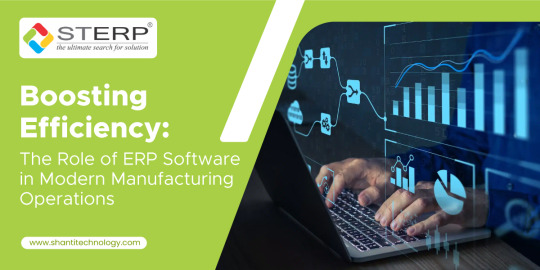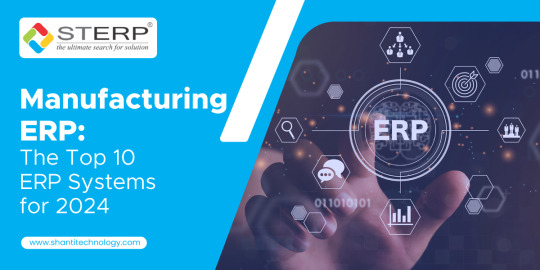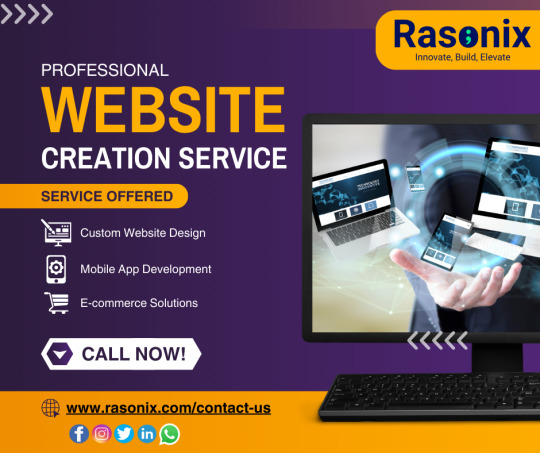#enterprise softwares
Text

Ah yes the 7 genders: MONDAY, TUESDAY, WEDNESDAY, THURSDAY, FRIDAY, SATURDAY, SUNDAY
135 notes
·
View notes
Text

UK 1987
#UK1987#ARGUS PRESS SOFTWARE#OXFORD DIGITAL ENTERPRISES#SIMULATION#LICENSED#ATARIst#IBM#AMIGA#C64#AMSTRAD#SPECTRUM#MACINTOSH#APPLE#MSX#THE HUNT FOR RED OCTOBER
40 notes
·
View notes
Text

Elevate your business with Magtec ERP! 📈 Experience real-time insights, smarter decisions, and streamlined operations. From CRM to manufacturing, we've got you covered. Book a demo today! 🚀
#magtec#erp#automation#business#efficiency#software#technology#innovation#digitaltransformation#enterprise#solutions#productivity#success#growth#management#finance#humanresources#supplychain#logistics#cloud#saas#onpremises#hybrid#integration#scalability#customization#support#trustedpartner#magtecerp#magtecsolutions
3 notes
·
View notes
Text
Boosting Efficiency: The Role of ERP Software in Modern Manufacturing Operations
In today's fast-paced manufacturing landscape, efficiency is not just a desirable trait; it's a necessity. To stay competitive and meet the demands of the market, manufacturers must streamline their processes, optimize resource utilization, and enhance decision-making capabilities. This is where Enterprise Resource Planning (ERP) software steps in as a game-changer. In this article, we'll delve into the pivotal role of ERP systems in revolutionizing manufacturing operations, particularly in India's thriving industrial sector.

Understanding ERP for Manufacturing Industry
ERP systems for manufacturing are comprehensive software solutions designed to integrate and automate core business processes such as production planning, inventory management, supply chain logistics, financial management, and human resources. By consolidating data and operations into a unified platform, ERP empowers manufacturers with real-time insights, facilitates collaboration across departments, and enables informed decision-making.
Streamlining Operations with ERP Solutions
In the dynamic environment of manufacturing, where every minute counts, efficiency gains translate directly into cost savings and competitive advantages. ERP software for manufacturing offers a multitude of features that streamline operations and drive efficiency:
1. Enhanced Production Planning: ERP systems enable manufacturers to create accurate production schedules based on demand forecasts, resource availability, and production capacity. By optimizing production timelines and minimizing idle time, manufacturers can fulfill orders promptly and reduce lead times.
2. Inventory Management: Efficient inventory management is crucial for balancing supply and demand while minimizing holding costs. ERP software provides real-time visibility into inventory levels, automates reorder points, and facilitates inventory optimization to prevent stockouts and overstock situations.
3. Supply Chain Optimization: ERP solutions for manufacturing integrate supply chain processes from procurement to distribution, enabling seamless coordination with suppliers and distributors. By optimizing procurement cycles, minimizing transportation costs, and reducing lead times, manufacturers can enhance supply chain resilience and responsiveness.
4. Quality Control: Maintaining product quality is paramount in manufacturing to uphold brand reputation and customer satisfaction. ERP systems offer quality management modules that streamline inspection processes, track product defects, and facilitate corrective actions to ensure adherence to quality standards.
5. Financial Management: Effective financial management is essential for sustaining manufacturing operations and driving profitability. ERP software provides robust accounting modules that automate financial transactions, streamline budgeting and forecasting, and generate comprehensive financial reports for informed decision-making.
6. Human Resource Management: People are the cornerstone of manufacturing operations, and managing workforce efficiently is critical for productivity and employee satisfaction. ERP systems for manufacturing include HR modules that automate payroll processing, manage employee records, and facilitate workforce planning to align staffing levels with production demands.
The Advantages of ERP for Manufacturing Companies in India
India's manufacturing sector is undergoing rapid transformation, fueled by factors such as government initiatives like "Make in India," technological advancements, and globalization. In this dynamic landscape, ERP software plays a pivotal role in empowering manufacturing companies to thrive and remain competitive:
1. Scalability: ERP solutions for manufacturing are scalable, making them suitable for companies of all sizes – from small and medium enterprises (SMEs) to large conglomerates. Whether a company is expanding its operations or diversifying its product portfolio, ERP systems can adapt to evolving business needs and support growth.
2. Compliance: Regulatory compliance is a significant concern for manufacturing companies in India, given the complex regulatory environment. ERP software incorporates compliance features that ensure adherence to industry regulations, tax laws, and reporting requirements, minimizing the risk of non-compliance penalties.
3. Localization: ERP vendors catering to the Indian manufacturing sector offer localized solutions tailored to the unique requirements of the Indian market. From multi-currency support to GST compliance features, these ERP systems are equipped with functionalities that address the specific challenges faced by Indian manufacturers.
4. Cost Efficiency: Implementing ERP software for manufacturing entails upfront investment, but the long-term benefits far outweigh the costs. By streamlining processes, optimizing resource utilization, and reducing operational inefficiencies, ERP systems drive cost savings and improve overall profitability.
5. Competitive Edge: In a fiercely competitive market, manufacturing companies in India must differentiate themselves through operational excellence and agility. ERP software equips companies with the tools and insights needed to outperform competitors, adapt to market dynamics, and capitalize on emerging opportunities.
Choosing the Right ERP Software for Manufacturing
Selecting the right ERP solution is crucial for maximizing the benefits and ensuring a smooth implementation process. When evaluating ERP software for manufacturing, companies should consider the following factors:
1. Industry-specific functionality: Choose an ERP system that offers industry-specific features and functionalities tailored to the unique requirements of manufacturing operations.
2. Scalability and flexibility: Ensure that the ERP software can scale with your business and accommodate future growth and expansion.
3. Ease of integration: Look for ERP systems that seamlessly integrate with existing software applications, such as CRM systems, MES solutions, and IoT devices, to create a cohesive technology ecosystem.
4. User-friendliness: A user-friendly interface and intuitive navigation are essential for ensuring widespread adoption and maximizing user productivity.
5. Vendor support and expertise: Select a reputable ERP vendor with a proven track record of success in the manufacturing industry and robust customer support services.
Conclusion
In conclusion, ERP software has emerged as a cornerstone of modern manufacturing operations, empowering companies to enhance efficiency, drive growth, and maintain a competitive edge in the global market. For manufacturing companies in India, where agility, scalability, and compliance are paramount, implementing the right ERP solution can be a transformative investment that paves the way for sustainable success. By harnessing the power of ERP, manufacturers can optimize processes, streamline operations, and unlock new opportunities for innovation and growth in the dynamic landscape of the manufacturing industry.
#ERP software providers in India#Manufacturing enterprise resource planning#ERP systems for manufacturing companies#ERP system for manufacturing industry#ERP for manufacturing companies#ERP software for engineering company#ERP software for engineering companies in India#ERP software for engineering companies in Mumbai#ERP solution providers in India#ERP for manufacturing industry#ERP systems for manufacturing#ERP solutions for manufacturing#ERP software manufacturing industry#ERP for manufacturing company in India#India
7 notes
·
View notes
Text
Enterprise Resource Management: Essential Software Testing Services

Enterprise Resource Management (ERM) software is the backbone of modern business operations, ensuring that all aspects of an organization work in harmony. To maximize the effectiveness of ERM software, thorough software testing services are essential. Here's how to approach it:
1. Importance of Software Testing in ERM
Software testing ensures that all ERM modules function correctly, avoiding disruptions in critical business processes.
2. Key Areas to Focus On
Functionality Testing: Validate that each module performs its intended function.
Performance Testing: Ensure the system can handle expected loads without lag.
Security Testing: Protect sensitive business data from potential breaches.
Integration Testing: Confirm that the ERM integrates smoothly with other enterprise systems.
3. Common Challenges
Software testing in ERM can be complex due to the interdependencies between different modules. It's crucial to adopt a comprehensive testing strategy that covers all bases.
4. Tools and Technologies
Utilize advanced testing tools like Selenium, JIRA, and LoadRunner to automate testing processes and improve accuracy.
5. Best Practices
Regularly update test cases to reflect changes in the software.
Involve end-users in the testing process to gather practical feedback.
Conduct both manual and automated tests for thorough coverage.
6. Case Studies
Successful ERM implementations highlight the role of rigorous testing in preventing system failures and enhancing overall performance.
7. Final Thoughts
Implementing robust software testing services in your ERM project ensures smooth operations and long-term success. Ensure that your ERM software not only meets current business needs but is also scalable for future growth.
2 notes
·
View notes
Note
Opinions on Bruce Wayne and his giant family? They are like celebrities here and was wondering what a person new to Gotham thinks on the whole situation. ^_^.
Having your own private Kardashians is kind of crazy. Gothamites seem to be obsessed with them because I swear he breathes and the WHOLE city has to report on it. I could care less about what business he endorsed, what the whole family wore to the met gala, but I’ve heard some things from the line cook here (she’s obsessed with that phallic name sounding guy). That time where Bruce Wayne was spotted at a local gay bar, numerous rumours about the actual number of children he has and even some crazy conspiracy theories…
BUT HE DID PAY MY WHOLE UNIVERSITY TUITION SO WOOOO I LOVE THE WAYNE FAMILY!! (Wayne Tech let me intern with you PLEASE)
#thinking about it now i wont be surprised if wayne enterprises has some control over the press here#like... how many times we got to report on how he got his injuries from extreme sports?#is it a cover up??#now you got me thinking about conspiracies#bruce wayne hire me#wayne tech i'll be a fire software developer or IT guy let me in#!!
4 notes
·
View notes
Text
How to Choose the Best Enterprise Software Development Company in 2024

We all witness enterprises facing many ups and downs due to technical evaluations happening in almost every industry. Business leaders are handling the pressure to leverage advanced technologies while managing costs. The best way to utilize these advanced technologies for enterprise growth is to have advanced enterprise software from your side. That’s why selecting an enterprise software development company that has expertise in both the fundamentals of software development and cutting-edge technologies becomes very important.
If, like many other enterprises, you also face difficulties in selecting the right company, then let me give you a simple guide on how to choose the best enterprise software development company in 2024.
Steps To Select The Best Enterprise Software Development Company in 2024
Define Your Strategic Objectives
Every enterprise has different requirements and objectives to fulfill with enterprise software. So, before starting the search for the best enterprise software development company, define what you want to achieve. Decide what kind of features you want in your software, what expertise you will require, your budget, and when you want your software.
2. Shortlist Proven Partner
After knowing your requirements, you will have a clear idea of the expertise you require to build your dream software. So, the next step is to prepare a list of potential partners. You can find them in Google or other search engines, visit their sites, have a brief overview of the companies, and make a list of around 10 to 15 companies that you find suitable for your business needs.
3. Deep Evaluation
You have prepared a list of some enterprise software development partners; now, it is time to conduct a deep evaluation of the companies. Understand their expertise, technical stack, and development methodologies, study client reviews, and then further shortlist 3 to 5 companies according to your requirements.
4. Schedule Initial Discussions
Now, it's time to meet them personally or on call. Schedule initial calls or meetings with your shortlisted companies. This will allow you to engage with the company and get a clear picture of their knowledge and expertise. Ask them specific questions regarding their approach, team, and culture.
5. Negotiation and Partnership
This is the step where your leadership and negotiation skills take place. After initial calls you will have a different proposals from your shortlisted companies. Carefully review each proposal and then negotiated with the company you want to work with. Ensure you compare the deals and select a company that can give you good ROI.
Choosing an enterprise software development company is an Important Task for any enterprise, so be careful to follow this streamlined process. Compare different companies and then choose that agiles to your business requirements and culture. Wishing you the best.
3 notes
·
View notes
Text
Unlocking Business Potential: The Power of Enterprise Software Development
In the ever-evolving landscape of technology, businesses are constantly seeking innovative solutions to stay ahead of the competition. One such transformative force is enterprise software development. This dynamic field has become the cornerstone for organizations looking to streamline operations, enhance efficiency, and drive overall growth.
Introduction:
Enterprise software development is not just about creating applications; it's a strategic investment in the future of your business. From automating complex processes to fostering seamless collaboration, the benefits of bespoke enterprise software are multifaceted and profound.
Efficiency Redefined:
One of the primary advantages of enterprise software development is its ability to optimize and automate business processes. Tailored solutions enable organizations to eliminate manual tasks, reduce errors, and enhance overall productivity. This newfound efficiency translates into cost savings, allowing companies to allocate resources strategically and focus on core business objectives.
Customization for Success:
Off-the-shelf solutions may offer a quick fix, but they often fall short of meeting the unique needs of a business. Enterprise software development allows for tailor-made solutions that align perfectly with specific workflows, ensuring optimal functionality and user experience. This customization empowers businesses to adapt to changing requirements seamlessly.
Integration for Seamless Operations:
Modern businesses rely on a multitude of tools and systems to operate efficiently. Enterprise software development facilitates the integration of diverse applications, creating a cohesive digital ecosystem. This interoperability not only enhances overall efficiency but also provides a holistic view of the business, enabling better decision-making.
Data-driven Insights:
In today's data-driven world, information is power. Enterprise software development empowers organizations with robust analytics and reporting tools, offering valuable insights into key performance indicators. This data-driven approach enables informed decision-making, strategic planning, and a proactive response to market trends.
Enhanced Collaboration:
Collaboration is the backbone of successful enterprises. Tailored software solutions can incorporate features that foster communication and collaboration among teams, irrespective of geographical boundaries. This heightened connectivity accelerates project timelines, encourages innovation, and cultivates a culture of teamwork.
Security as a Priority:
With the rising threat of cyber-attacks, data security is non-negotiable. Enterprise software development allows businesses to implement robust security measures tailored to their specific needs. From encryption protocols to user access controls, these solutions ensure that sensitive information remains safeguarded against evolving cyber threats.
Scalability for Growth:
As businesses evolve, so do their requirements. Enterprise software developed with scalability in mind can adapt to the changing needs of an organization. Whether it's accommodating a growing user base, expanding functionality, or integrating with new technologies, scalable solutions future-proof businesses against unforeseen challenges.
Conclusion:
Enterprise software development is not merely a technological investment; it's a strategic imperative for businesses aspiring to thrive in today's competitive landscape. From enhancing efficiency to fostering innovation, the power of bespoke software solutions is unparalleled. As businesses navigate the digital era, embracing enterprise software development is the key to unlocking their full potential. It's time to transform challenges into opportunities and pave the way for a future where technology propels businesses to unprecedented heights.
2 notes
·
View notes
Text
KGT Applications offers tailored business solutions. We design custom tools to automate tax processes, streamline operations and enhance efficiency to ensure tax compliance and business growth. With a comprehensive suite of enterprise software, businesses can optimize their processes and reach their maximum potential. Contact KGT Applications today!
#tax services#sap consulting services#business automation#business solutions#process management#Enterprise software
3 notes
·
View notes
Text
Discover Prometheus Group
Discover how Prometheus Group transforms asset management and operations, making complex tasks simple. Imagine streamlining your plant's maintenance and safety needs with our leading software solutions.
From planning to execution, we integrate seamlessly with top ERP, EAM, and CMMS systems like SAP, IBM Maximo, and Oracle. Experience a cloud-based platform that simplifies user experience while empowering your organization to engage, monitor, and manage data more effectively. Join us and elevate how your organization operates, enhancing reliability, reducing costs, and maximizing equipment uptime.
Let's revolutionize your asset management together. Explore more at Prometheus Group.
2 notes
·
View notes
Text
This is the bullshit about starting work again, I come home and continue with rubbish like planning plot processes and prioritisation matrixes and production programs and the like, instead of, you know, writing.
#managing the production vs actually “being the producer” brain#its such a different way of thinking I haven't worked out my 'snap brain into that different kind of creative mode again'#The reason I can be satisfied at my job is that I approach all that stuff *as* creative exercises; I create the clarity that does not exist#People blab for 30mins about problems and I doodle on a whiteboard and then they slow down and realise I've drawn their solution map#I *could* have been a consulting business analyst for the requirements definition stuff but detest the software/technologies rigidity part#What I really need is some 15 minute major physical/mental/formic break between work and home to switch brain modes#I do have a 20min powerwalk in there but then I have to do the kid/house so the endorphin benefit towards creative enterprise wears off
3 notes
·
View notes
Text
It's kinda funny that my company was almost entirely unaffected by the largest IT disaster in history because we don't make enough money to afford for crowdstrike's multi-million dollar contracts
69 notes
·
View notes
Text

UK 1987
#UK1987#ELECTRIC DREAMS#MD SOFTWARE#FOCUS CREATIVE ENTERPRISES#SOFTWARE STUDIOS#ACTION#LICENSED#C64#AMSTRAD#SPECTRUM#BIG TROUBLE IN LITTLE CHINA
61 notes
·
View notes
Text

With Magtec ERP Software,
streamline your operations, manage resources, and make data-driven decisions all from the comfort of your desk!
#magtec#erp#automation#business#efficiency#software#technology#innovation#digitaltransformation#enterprise#solutions#productivity#success#growth#management#finance#humanresources#supplychain#logistics#cloud#saas#onpremises#hybrid#integration#scalability#customization#support#trustedpartner#magtecerp#magtecsolutions
3 notes
·
View notes
Text
Manufacturing ERP: The Top 10 ERP Systems for 2024
Introduction:
In the dynamic landscape of the manufacturing industry, the right technology can make all the difference in streamlining processes and enhancing overall efficiency. Manufacturing Enterprise Resource Planning (ERP) systems have become indispensable tools for businesses seeking to integrate various facets of their operations seamlessly. As we step into 2024, the demand for robust ERP solutions continues to grow. In this blog, we will explore the top 10 Manufacturing ERP systems that are poised to make a significant impact on the industry this year.

1. SAP S/4HANA: Pioneering Manufacturing Resource Planning System
One of the most trusted names in ERP, SAP S/4HANA stands out as a comprehensive Manufacturing Resource Planning System. Its real-time analytics, integrated modules, and intelligent automation make it an ideal choice for businesses aiming to optimize their manufacturing processes.
2. Oracle ERP Cloud: Empowering Manufacturing Enterprise Resource Planning
Oracle ERP Cloud offers a scalable and flexible solution for manufacturing enterprises. With its robust features, it caters to the diverse needs of businesses, ensuring a seamless integration of manufacturing operations. Its cloud-based architecture provides the agility required for modern manufacturing environments.
3. Microsoft Dynamics 365: A Versatile ERP Solution
Microsoft Dynamics 365 is gaining prominence as a Manufacturing Enterprise Resource Planning software that offers versatility and integration capabilities. Its user-friendly interface and interoperability with other Microsoft products make it an attractive choice for businesses, especially small enterprises.
4. Infor CloudSuite Industrial: Tailored Manufacturing ERP
Infor CloudSuite Industrial is designed with the unique needs of manufacturers in mind. It provides specialized functionalities, including supply chain management and shop floor control, making it a standout choice among ERP solution providers.
5. NetSuite ERP: Unifying Manufacturing Operations
NetSuite ERP is recognized for its ability to unify diverse manufacturing operations into a single, cohesive system. Its cloud-based platform allows for real-time collaboration and data accessibility, making it an efficient Manufacturing Enterprise Resource Planning Software.
6. Epicor ERP: Driving Growth for Small Businesses
Epicor ERP is particularly well-suited for small businesses in the manufacturing sector. With its focus on driving growth and improving efficiency, Epicor ERP offers a cost-effective solution without compromising on essential features.
7. IFS Applications: Comprehensive ERP Solution
IFS Applications is a comprehensive ERP solution that covers a wide range of manufacturing processes. Its modular structure allows businesses to tailor the system according to their specific requirements, making it a preferred choice for Manufacturing Enterprise Resource Planning.
8. IQMS Manufacturing ERP: Enhancing Shop Floor Control
IQMS Manufacturing ERP is distinguished by its emphasis on shop floor control and real-time monitoring. It empowers manufacturers with tools to optimize production processes and make informed decisions, positioning it as a top choice among ERP solution providers.
9. Acumatica Cloud ERP: Scalability for Growing Businesses
Acumatica Cloud ERP stands out for its scalability, making it an ideal choice for growing manufacturing businesses. With a flexible platform and advanced features, Acumatica supports businesses in adapting to changing demands and expanding their operations seamlessly.
10. SYSPRO ERP: Tailored for Manufacturing Success
SYSPRO ERP is tailored to meet the specific needs of manufacturing industries. Its focus on delivering a user-friendly experience and addressing industry challenges positions it as a reliable choice for Manufacturing Enterprise Resource Planning.
Conclusion:
As manufacturing industries evolve, the importance of robust ERP systems cannot be overstated. The top 10 ERP systems highlighted in this blog represent the cutting edge of technology, offering solutions that cater to the unique demands of the manufacturing sector. Whether it's SAP S/4HANA's real-time analytics, Oracle ERP Cloud's scalability, or Acumatica Cloud ERP's flexibility, each system brings its own strengths to the table.
For businesses in Madhya Pradesh seeking Manufacturing Software for Small Business, these ERP solutions provide a pathway to enhanced productivity and streamlined operations. Choosing the right Manufacturing ERP system is a critical decision that can impact a company's growth and competitiveness. Evaluate the features, scalability, and industry focus of each system to find the perfect fit for your manufacturing enterprise. Embrace the power of ERP in 2024 and position your business for success in the ever-evolving landscape of manufacturing technology.
#Manufacturing Software for Small Business#Manufacturing Enterprise Resource Planning Software#ERP Solution Providers in Madhya Pradesh#Manufacturing Enterprise Resource Planning#Manufacturing Resource Planning System#ERP Software#Chain Cycle Management#Business#Engineering#Manufacturing#India#Madhya Pradesh#Go-To-Market#GTM#ERP
7 notes
·
View notes
Text

Efficient System Administration Services for Streamlined Operations || Rasonix
Unlock Your Digital Potential with Rasonix. Being one of the best Web Development Company in Bangalore, from inception to execution to sustainment, we provide comprehensive support for your digital journey. We pride ourselves on delivering high-quality solutions that meet our clients' needs and contribute to their success. Our team of skilled professionals is dedicated to providing exceptional service and exceeding client expectations.
At Rasonix, we follow a well-defined and efficient application development process to deliver high-quality and innovative solutions. We ensure that our clients receive top-notch solutions that align with their requirements, exceed their expectations, and drive their business forward. Call us today to get best website designing and application development services. Rasonix is a leading website development company in Bangalore.
#software development company#software development firm#responsive web design#rasonix#web design#web development company#website designer near me#enterprise application development
4 notes
·
View notes